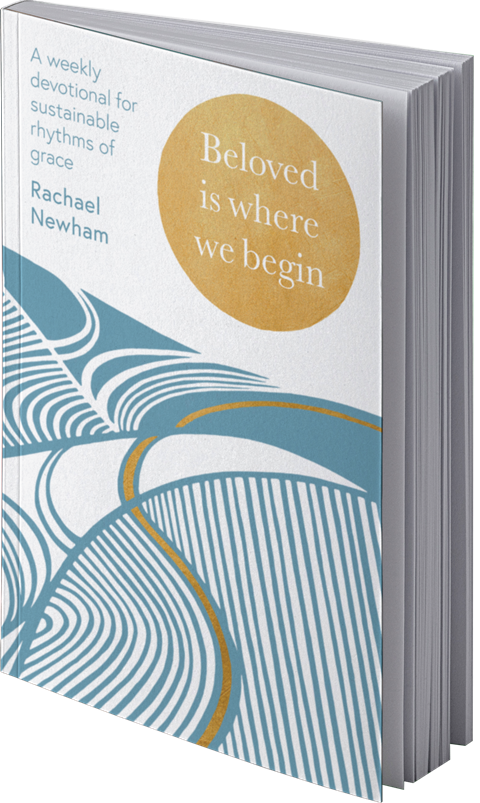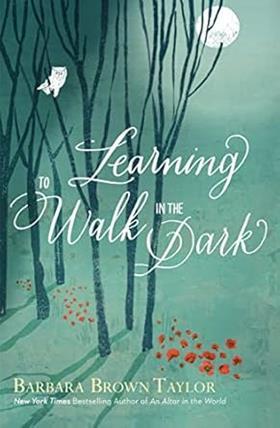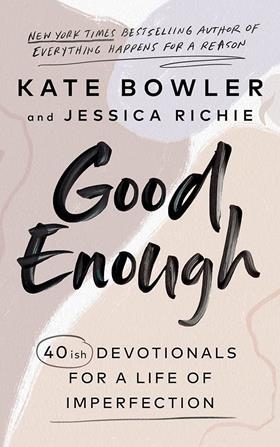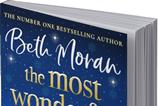Hosted by Claire Musters
This month I’m also reading…

Beloved is Where We Begin By Rachael Newham (978-0281091119, Form, publishing August)
For those who struggle to carve out space every morning, Beloved is Where We Begin could be hugely helpful. Rather than focusing on an entry for each day, a regular, sustainable rhythm is encouraged through 52 reflections – one for each week of the year.
The author, Rachael Newham, structures the book around the liturgical year, guiding readers through Easter, Ordinary Time, Advent, Christmas, Lent, Ascension Day, Pentecost etc and encourages us to recognise God’s voice calling us his beloved in every season and circumstance. It is from that place of knowing we are loved that we can live effectively as his children. Each entry has a reading, reflections on the scripture from Rachael and then either a prayer, poem or breath prayer (a phrase to pray when inhaling and another when exhaling) to end with – mainly written by Rachael herself. There is a gentleness to this book, but also a disarming honesty.
In conversation with Rachael Newham
You are very open about the fact that the idea for this book – and the writing of it – came at a time when your ongoing mental health struggles resurfaced and crashed your family life. What would you like readers to know about your motivation for writing it, and what your own experience of sitting with this material has been?
I guess I wrote it initially for myself! I felt like I was completely at sea, and I was questioning everything in my life, but the love of God was my solid ground. I began to reflect on the almost 30 years I’ve been a Christian, and time and again I was drawn back to the truth of our belovedness being what has sustained me. So often we begin the story of the Bible in Genesis 3, when humanity falls, and yet that’s not where our story begins – it begins with God wanting to create us in his image and loving us. I wanted to remind myself and my readers of that.
Why do you think it is so important for us to recognise and experience being God’s beloved?
I think holding close to the reality of being loved by God is what can ground us. There are so many things that can send us spiralling, but knowing we are loved means we can stand firm in who we are and why we choose to live the way we do. The increasing disability I’ve experienced over the past few years has so often made me feel like I’m failing at life, and I signed the contract to write this book just a few weeks after being made redundant, but, although I was sad, my identity wasn’t rocked in a way it might have been before. I held onto being beloved and knowing that God’s care for me wasn’t going to let me go just because life was rocky.
In the entry on the resurrected Jesus showing Thomas his scars, you explore how willing Jesus was to keep the scars but also reveal them. How do you think that impacts us today – and you personally?
There is such a tendency in culture today only to tell stories with happy endings, or to only show the best bits of our lives on social media, but Jesus demonstrates such vulnerability in offering his scars as proof of what he went through. I have been challenged by Jesus’ scars since I was 15 and first had to face the scars of my self-harm. I was so deeply ashamed of them for so long, but I’ve been on this journey with Jesus where he’s shown me that my scars are signs of his mercy and grace towards me. They are signs of surviving something I believed was insurmountable – as well as the power of his grace in my weakness.
The title of the book indicates that it is knowing we are God’s beloved that is the jumping off point – “where we begin” – where has that led you, and where do you hope to lead your readers?
The title is actually a line from a poem by Jan Richardson, and I first read it during a retreat. It completely captured my heart, and I felt really strongly that if we can really grasp that the story of humanity begins with our belovedness, we can be bolder and more loving because we aren’t basing our identity in our shame, but in the love that came first and the love that draws us back with God’s forgiveness. I don’t want to go through the motions of life trying to avoid sin like some cosmic game of hopscotch – I want to be led by the love God has for his people. Right now, that looks like writing about it and also staying involved in advocating for those with mental illnesses. I hope that the book helps people to navigate their lives back to belovedness so that God can lead them on whatever adventure he has in store for them!
You talk about recognising and understanding that God’s love is at work even when we are facing huge difficulties, pain and pressure and are conscious, too, of the struggles of so many around the world. What are some of the things that have helped you do this?
Time and again, I have seen the love of God at work most clearly in those around me: the people who’ve given me lifts when I couldn’t drive or helped out with childcare when I was too unwell to manage. The gift of other people’s time consistently points me back to God’s love, because we see so often in scripture how God works through his people. I love how he comforts Naomi in her grief by sending Ruth to stay the journey with her; there are people in my own life who have been present and praying with and for me for decades, who demonstrate the persistence and patience of God’s love through their own.
I really hope that this book encourages people to reach out to help people. All too often we put the responsibility on
people in pain to ‘reach out’ but sometimes that feels impossible. Jesus often reached into the lives of people in need, whether it be his hospitality towards Zacchaeus or his conversation with the Samaritan woman at the well, to remind them of their belovedness and point them towards a better way of loving.
Rachael Newham on: The books that have changed my life

Amazed by Jesus by Simon Ponsonby
I read this a couple of years ago and it reminded me of how amazed by Jesus I had been when I was younger and also highlighted how I’d let that amazement dim over the years. It’s a beautiful book that made me want to reach for my Bible and be freshly captivated by Jesus.

Learning to Walk in the Dark by Barbara Brown Taylor
I’ve lost count of how many times I’ve read and quoted this book! It speaks so powerfully of the way Jesus doesn’t abandon us to darkness, but neither does he banish it. It’s a reminder that God didn’t banish the darkness from creation, he boundaried it, and that he is still at work even when all feels lost.

Good Enough by Kate Bowler and Jessica Ritchie
I initially read this as a Lent book, but I’ve returned to it countless times because it does such a brilliant job of holding the brokenness of life with the beauty of God. It’s a rallying cry for honest faith that doesn’t pretend Jesus is a shield against hard times but a trusted friend and King who we can rely on even when life is hurting.

































No comments yet